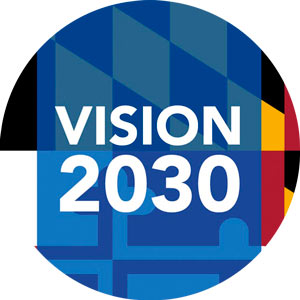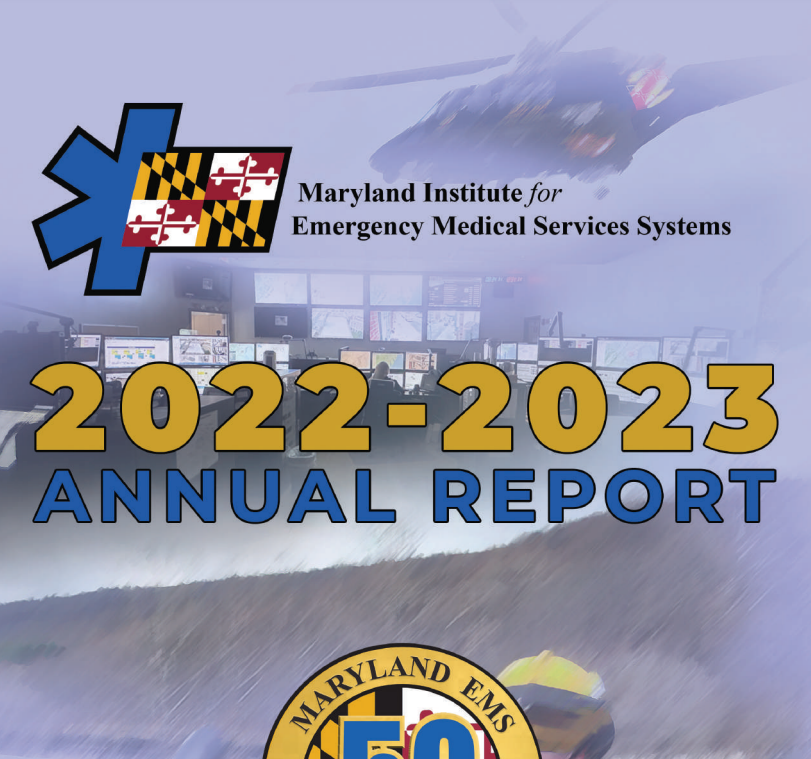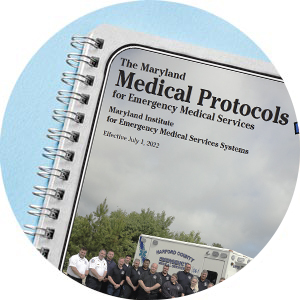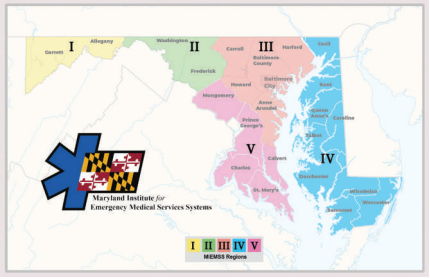The Maryland Institute for Emergency Medical Services Systems (MIEMSS) provides the executive support for the EMS Board in reviewing and approving the budgets for agencies receiving funds from the EMS Operations Fund, developing and promulgating regulations and protocols, proposing EMS system legislation, licensing/certifying and disciplining EMS clinicians, and conducting other EMS Board business. MIEMSS also provides the administrative and staff support for the Statewide EMS Advisory Council (SEMSAC) and five EMS regional councils.
Mission
Consistent with Maryland law and guided by the EMS Plan, to provide the resources (communications, infrastructure, grants, and training), leadership (vision, expertise, and coordination), and oversight (medical, regulatory, and administrative) necessary for Maryland’s statewide emergency medical services (EMS) system to function optimally and to provide effective care to patients by reducing preventable deaths, disability, and discomfort.
Vision
To be a state EMS system acknowledged as a leader for providing the highest quality patient care and that is sought out to help other EMS systems attain the same level of quality care.
Key Goals
To meet our vision, MIEMSS works to Ensure EMS clinicians are optimally prepared and qualified for the care they are called upon to provide; Ensure all aspects of the EMS system benefit from qualified EMS medical direction; Ensure Maryland EMS educational programs meet the needs of EMS clinicians and the patients they serve; Ensure EMS clinical care reflects best practices, statewide; Develop systems of care appropriate for the emergency conditions encountered by Marylanders; Ensure that EMS is considered part of the continuum of health care; Develop and maintain EMS communications systems that are integrated and interoperable; Support implementation of Next Generation 9-1-1; Ensure the Maryland EMS Operations Fund is a sustainable source of support for system infrastructure; and Ensure that evaluation is part of the EMS culture at all levels.

Vision 2030
The goals and objectives of the statewide EMS system are found in the statewide Maryland EMS Plan, Vision 2030 Plan

Annual Report
The goals and objectives for 2023-24 that align to the EMS Plan can be found in the MIEMSS Annual Report

EMS Protocols
The MD Medical Protocols for Emergency Medical Services Clinicans. These are the Protocols for EMS, effective July 1, 2023.

Maryland’s EMS system is composed of five regions. Each region has a Regional EMS Advisory Council responsible for and defined by regulation. Each council meeting covers a range of topics, including grants, training, EMS policies and protocols, legislation, and communications. Input from each Regional EMS Advisory Council is provided to the Statewide EMS Advisory Council for recommendation to the EMS Board. MIEMSS’ regional coordinators support the councils, facilitate communication, and address regional EMS issues.